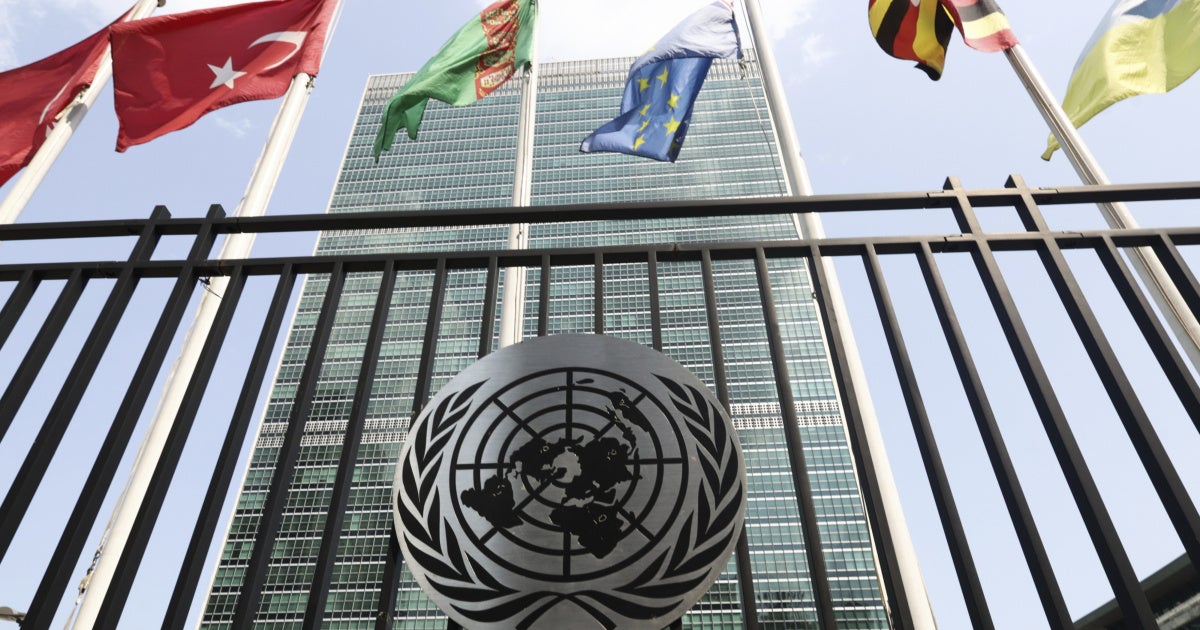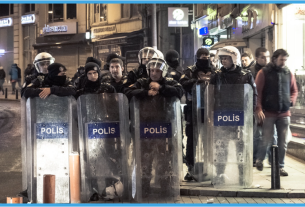(New York) – Developing an effective International Convention to Prevent and Punish Crimes against Humanity will require ambitious and forward-looking diplomacy, Human Rights Watch and Columbia Law School’s Prevention of Crimes Against Humanity Project said today in a new briefing paper outlining 25 recommendations for delegations at the United Nations to consider as they prepare for the formal treaty negotiations.
Crimes against humanity, which include extermination, enslavement, rape, forced pregnancy, persecution, enforced disappearance, and apartheid, among others, when committed as a part of a widespread or systematic attack directed against a civilian population, are among the gravest offenses under international law. Their prohibition is already considered a preemptory norm, something no state can opt out of. A new treaty would bring important coherence and consistency to how these crimes are treated in each jurisdiction and enable cooperation among states to prevent these crimes.
“It’s been 80 years since Nazi leaders were charged with crimes against humanity in Nuremberg, but we are still waiting for a treaty exclusively dedicated to addressing them,” said Akshaya Kumar, crisis advocacy director at Human Rights Watch and author of the brief. “Diplomats meeting in New York to address this gap should commit to a process that intentionally challenges the exclusion and inequities that too often defined international lawmaking in the past, so that this treaty better anticipates the next 80 years.”
In December 2024, UN member states agreed in General Assembly Resolution 79/122 to move ahead with formal work on this treaty. This process, which will begin with a preparatory committee in January 2026, is a landmark opportunity to consolidate global commitments to prevent and punish these grave crimes. Meetings in New York should be supplemented by regional meetings and consultations to boost participation and accessibility, especially considering growing visa restrictions in the United States.
Organizers should also commit to webcast proceedings with simultaneous translation to allow the broadest possible participation in the process. This would include victims’ and survivors’ groups, women’s rights defenders, Indigenous communities, academics, people with disabilities who may require reasonable accommodations to participate, and children and young people.
The months ahead will test countries’ resolve to maintain unity and vision against political headwinds, the groups said. To achieve the strongest possible outcome, delegates must be willing to vote when consensus-based decision making, which requires unanimous agreement, creates inevitable roadblocks and delays.
UN member states in the General Assembly Sixth Committee, the UN’s legal forum, met earlier in October 2025 to discuss the road toward formal negotiations. Country after country reaffirmed support for the process outlined in the December 2024 resolution and expressed their intention to participate in negotiations to develop a convention that would better protect civilians from these atrocity crimes. Led by Costa Rica, dozens of delegations from Africa, Latin America, Europe, and Asia on October 13 vocally called for the inclusion of civil society organizations in every stage. They even urged the inclusion of organizations that do not have formal “consultative” status at the UN’s Economic and Social Council, recognizing that this accreditation is difficult to obtain and can be challenging to maintain for grassroots groups. In comments at the same meeting, Germany specifically noted the importance of allowing civil society organizations to participate in the “working group” sessions planned for January 2026.
The January meetings will also include a working group in which each delegation will have a chance to share its views on possible amendments to the text of a set of draft articles, which were prepared by the International Law Commission and originally published in 2019. These draft articles have already been the subject of discussions at two “resumed” sessions of the Sixth Committee in 2023 and 2024, and in a round of written comments, and are addressed in the briefing paper released today. By April 30, 2026, states will have to submit proposals for amendments to the 2019 draft articles. These proposals, together with the draft articles, will be included in a compilation for states to consider at the planned 2028 and 2029 meetings of the plenipotentiary conference negotiations.
The treaty could anchor justice for crimes against humanity more solidly in international law, spurring states to adopt national laws and bolstering the efforts of domestic courts through mutual legal assistance. Ideally, negotiators will use the multi-year process to refine the terms of the treaty so that it better recognizes the unique harms faced by women, people with disabilities, children, and other groups. The final text should also include procedural protections for the accused, limit safe havens for suspects, and recognize victims’ rights, particularly to reparations, while maintaining maximum scope for jurisdiction.
“It’s more important than ever for governments to reaffirm their commitment to the rule of law and resist any effort to dilute the convention’s core principles, including on prevention,” said Christine Ryan, director of Columbia Law School’s Prevention of Crimes Against Humanity Project.
The groups, in the briefing paper, spotlighted key elements of the draft articles that are especially important to maintain. They are also advancing 13 possible amendments to the draft articles that they hope the countries will adopt as their own and submit as proposals before the April 30, 2026, deadline.
The growing momentum around the formal process toward a treaty stands out at a time when, more than ever, and over the opposition of big powers, the world needs to bolster multilateralism. The leadership of The Gambia, Mexico, Costa Rica, and Sierra Leone has been essential.
“The collective will of supportive states, especially with leadership from the Global South and the determination of civil society, will be necessary to ensure an effective treaty becomes reality,” said Richard Dicker, senior legal adviser at Human Rights Watch, who has been working for years to move the treaty process forward. “From El Fasher to Gaza City, Cox’s Bazaar to Mariupol, victims and survivors should be the moral compass of this process. Their courage reminds us why accountability matters.”



